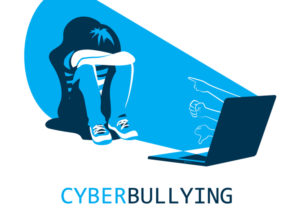 We live in a world that is very digitally active and dependent. It is pretty much inevitable that our kids will be spending time online, predominantly on social media websites and apps. You want to protect your children, but it is impossible to protect them completely, nor is it always the best route to take. It is important to find a balance between sheltering your child and guiding them in the right direction, to teaching them to make the right decisions on their own.
We live in a world that is very digitally active and dependent. It is pretty much inevitable that our kids will be spending time online, predominantly on social media websites and apps. You want to protect your children, but it is impossible to protect them completely, nor is it always the best route to take. It is important to find a balance between sheltering your child and guiding them in the right direction, to teaching them to make the right decisions on their own.
With the popularity of social media, one of the biggest problems in today’s society, particularly in America, is cyberbullying. It is real, and it can be vicious. When teens have the protection and shielding of a screen, their conscience seems to weaken. In many circumstances, where a child wouldn’t be necessarily cruel in person, the “impersonal” aspect of saying something to someone online makes them more likely to engage in harsh and cruel language and statements.
It can be extremely difficult as a parent to know how to deal with cyberbullying. While many parents opt for cutting out social media altogether, frankly, teens will find a way to access it anyways. Unfortunately, banning them from the platforms isn’t a solution. Instead, there are a few more efficient and lasting ways to deal with cyberbullying. Communicate these steps with your child to help them appropriately deal with cyberbullying.
The steps to take when addressing cyberbullying with your child:
First, thank your child for sharing and tell them it was the right thing to do
Reassure your child that they did the right thing by coming to you. Try to not get too worked up about the situation, but respond calmly as your child may become more upset in seeing you upset.
Don’t immediately jump on your child’s defense
Because you love your child and want to be a good parent and protect them, your first reaction may be to get worked up and feel that you must jump to your child’s defense. Try to see the situation from all the various perspectives, sometimes what exists online isn’t the full story.
Keep the matter private. Don’t get involved by contacting the child [doing the bullying] yourself. Many times, if the matter becomes public it can only make it worse for your child. If it is necessary to contact school authorities, make sure that the matter remains entirely private and discreet.
Communicate to your child that it isn’t their fault
Sometimes children believe what the bully is telling them. Reassure your child that the cruelty is not a depiction of reality, and nor is it in any way their fault.
Tell them not to respond or retaliate
Many bullies feed off of a response or reaction. Stress to your child the importance of not responding or retaliating. If the bully doesn’t get a rise out of your child, they lose their leverage and power, and often eventually lose interest in personally-attacking them.
Consider having your child confront that person and telling them to stop
If your child doesn’t feel comfortable telling the bully to stop, that is okay. However, sometimes, a conversation in which your child tells the bully to stop can have more of an influence than you might think. This isn’t always the case, and if your child doesn’t feel comfortable confronting the bully, don’t try and persuade them to.
If it persists, have your child block that person on the platform
All social platforms have the ability to block people from contacting and commenting on the account. If the bullying persists, have your child block that person from their account.
Encourage them to talk to someone about it
Talking about it is one of the most useful tools when it comes to these types of situations. This is especially important advice if your child is becoming very emotionally involved or affected by the bullying. Encourage your child to talk about it with a professional if it is overwhelming them.
Ensure they keep their accounts protected
Encourage your child to set their accounts to private, this way no one except their accepted friends can contact them or view their content.
We can help
Don’t take cyberbullying too lightly, as it can have lasting negative effects on your child, their emotions and self-esteem. Follow these steps and if your child is exhibiting any signs of emotional distress or depression reach out to a teen therapist in Carrolton.
Here at Lifeworks Counseling Center, our team of caring professionals can help. One of our experienced therapists will know the appropriate way to handle the situation and communicate with your child about it. If you have any questions or would like to schedule an appointment, please don’t hesitate to contact us today.




